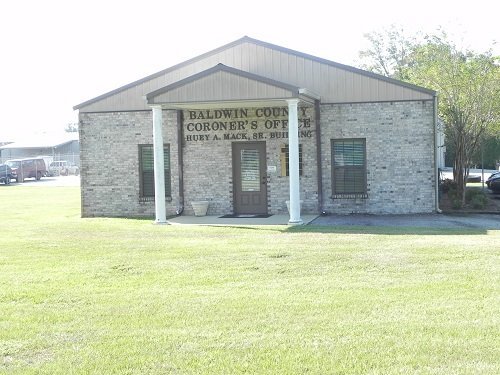ROBERTSDALE — Death equals paperwork. For years, employees in the coroner's office used dozens of spreadsheets to track manner of death, age, location and other end of life information. Data …
This item is available in full to subscribers.
Please log in to continue |

ROBERTSDALE — Death equals paperwork.
For years, employees in the coroner's office used dozens of spreadsheets to track manner of death, age, location and other end of life information. Data was manually entered and compiled for each case, equaling a backlog of work and a delay in annual reporting.
Now, the Baldwin County Coroner's Office can compile that information in a matter of hours thanks to a new program its staff developed with the Baldwin County Communications and Information Systems department.
Baldwin County Coroner Brian Pierce said the switch means all those records are compiled and stored digitally, revolutionizing how the office operates.
"Now we can pull reports and information in the blink of an eye instead of trying to look at 27 spreadsheets and draw information from those," he said.
The new program allows the different layers of the coroner's process to be input into one digital file by several users. This includes notes taken by the individual who responds to the death and information from all law enforcement agencies involved. There is a place to upload medical records, photos and drug screenings as well.
Previously, the process of gathering each of those pieces of data could take weeks. It would take even longer to tally the totals for months or years and report trends to state agencies. The creation of the software was spurred by the COVID-19 pandemic and the need to report statistics fast, Pierce said.
The biggest benefit may be in future improvements to the department.
Decisions made annually concerning budgets as well as real-time during emergencies are impacted by the available data. Now that the data is up to date, those decisions can be made faster and with more precision.
The new system also had to be built from the ground up, Pierce said, because existing software was geared toward medical examiners. Most counties in Alabama rely on coroners rather than medical examiners to investigate deaths that do not occur in a medical setting, he said.
The public health department is roughly two years behind in compiling vital statistics for the same reason, Pierce added.
Baldwin County would have continued to be behind, too, without the new software.
"The whole goal is to make a better product and give decision makers information in a timely fashion," he said.
Pierce said ultimately he hopes other counties purchase the software, generating a revenue stream for the coroner's office.
"My goal is to have the state pick this up and disperse it to all the coroners. Public health would have all the information at the drop of a hat," Pierce said. "It's very hard to report these statistics if you are keeping up with paper."